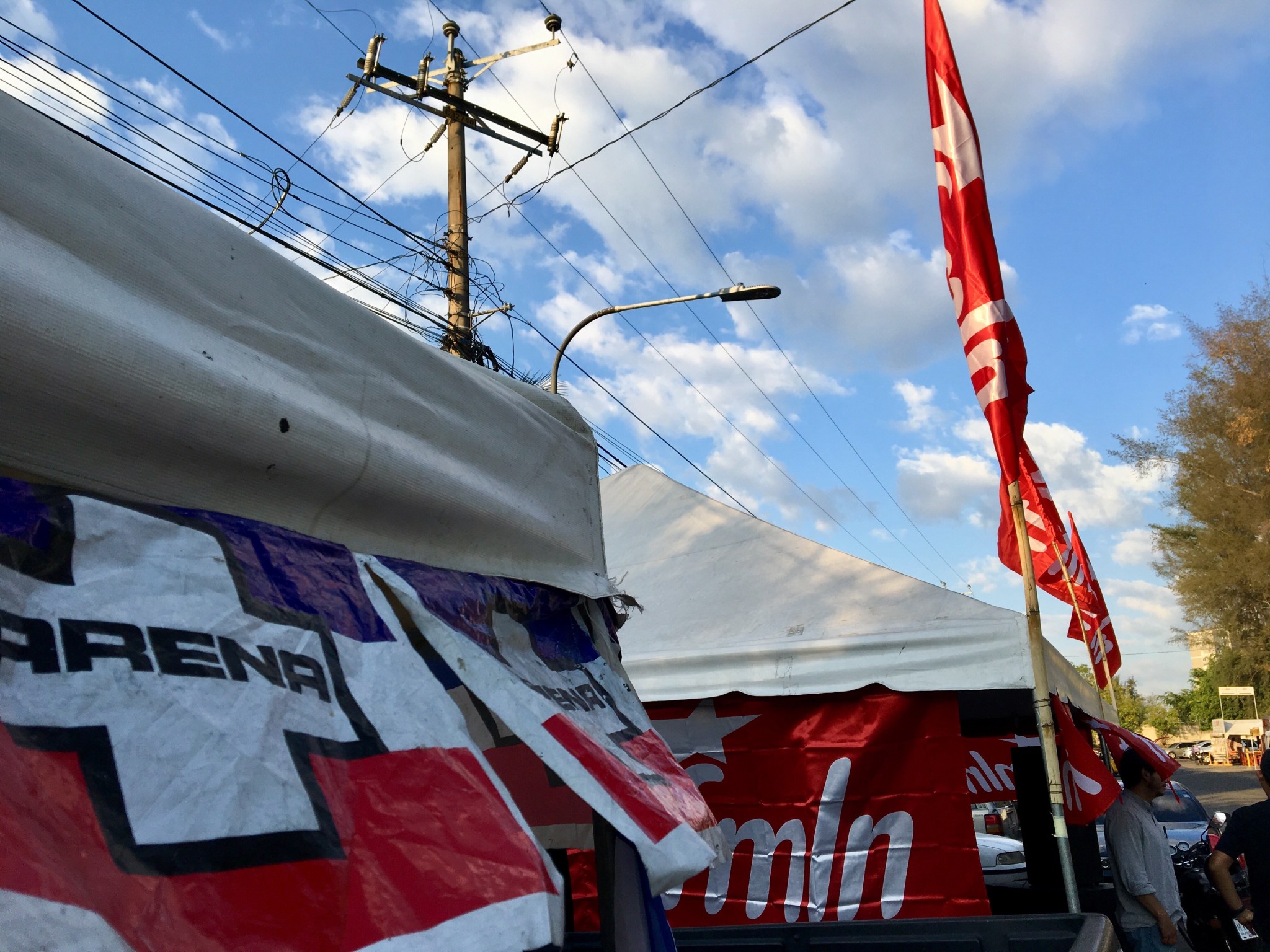Field Report: El Salvador’s Municipal & Legislative Elections

IRI’s Central America team is in El Salvador this weekend for an election assessment of the March 4, 2018 municipal and legislative elections. What is our objective, why does it matter, and what have we observed?
What is our objective?
Our goal is to assess the use of democratic norms in El Salvador’s municipal and legislative elections. IRI has brought a delegation of international experts to El Salvador, including Boloivia’s former president Carlos Mesa, as well as electoral experts from Chile, Guatemala, Mexico, Nicaragua, Panama, and Peru. We have met with local electoral authorities, political parties fielding candidates, civil society organizations, and citizens to solicit their views of procedures in the run-up to the vote.
IRI is supporting two Salvadoran organizations, Fundación Salvadoreña para El Desarrollo Economico y Social (FUSADES) and Iniciativa Social para la Democracia (ISD), that are conducting long term domestic observations of the process. On Election Day, these organizations will deploy some 700 observers to all 14 departments of El Salvador, and will subsequently provide recommendations to be shared with El Salvador’s electoral commission, or Tribunal Supremo Electoral (TSE).
Why does it matter?
Free and fair elections are a cornerstone of a healthy democracy. These elections are particularly important to El Salvador as the country tests changes to the electoral system. For the first time, independent citizens (not affiliated with parties) are forming the polling station boards, or juntas receptoras de votos (JRVs), and counting ballots for the first time. The new ballot and count are very complex, municipal councils can be made up of multiple parties for only the second time, and the number of independent candidates is increasing. IRI’s local observers and electoral assessment delegation will accompany Salvadorans as they continue to strengthen their democratic institutions.
What have we seen since arriving?
Three issues have surfaced: the new ballot, the challenges confronting the TSE, and the size of the turnout.
The new ballot in El Salvador is complex, and voters can use three different methods to mark them. During the pre-electoral period, IRI sought to address this with its Vota Bus. Additionally, different parties are advocating the use of the ballot in different ways. This has created some confusion surrounding the ballot, and it is expected that a number of ballots will be considered null if mismarked.
The major challenge has been training voting station workers, or juntas receptoras de votos (JRVs). This year, for the first time, non-partisan individuals will operate the JRVs, while funding for the TSE was reduced. There are just under 50,000 Salvadorans who have been selected to serve on JRVs and the TSE has had to train enough to cover 1,595 polling stations. The TSE is also using technology in new ways in this year’s election. The South Korean government has donated scanners to the Salvadoran government to scan the tally sheets. These sheets will be sent via a private network to the TSE. The TSE will then send the tally sheets to a private company to digitize them and upload the results to an internal TSE site.
Voter turnout in these elections is expected to be relatively normal for El Salvador’s municipal and legislative elections, in the range of 30-40% voter turnout. One concern is that, even if turnout is high, the number of nulo ballots may be very high. In addition to a lack of knowledge about the ballot, there is a campaign to intentionally nullify one’s vote to express discontent with corruption in El Salvador.
What do we expect will happen?
Electoral irregularities are normal in any democracy, but all indicators point toward a process that will occur within democratic norms. Whoever wins will have to confront a significant palette of issues including a challenging economic environment and the ongoing fight against corruption and crime.
Follow along with IRI on the ground on election day with @IRI_es and the hashtag #quechivoVotar.
Top